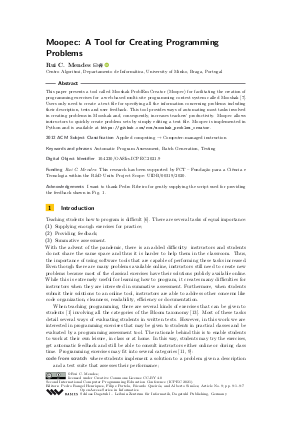OASIcs.ICPEC.2021.9.pdf
- Filesize: 0.6 MB
- 7 pages

 Creative Commons Attribution 4.0 International license
Creative Commons Attribution 4.0 International license








Feedback for Dagstuhl Publishing